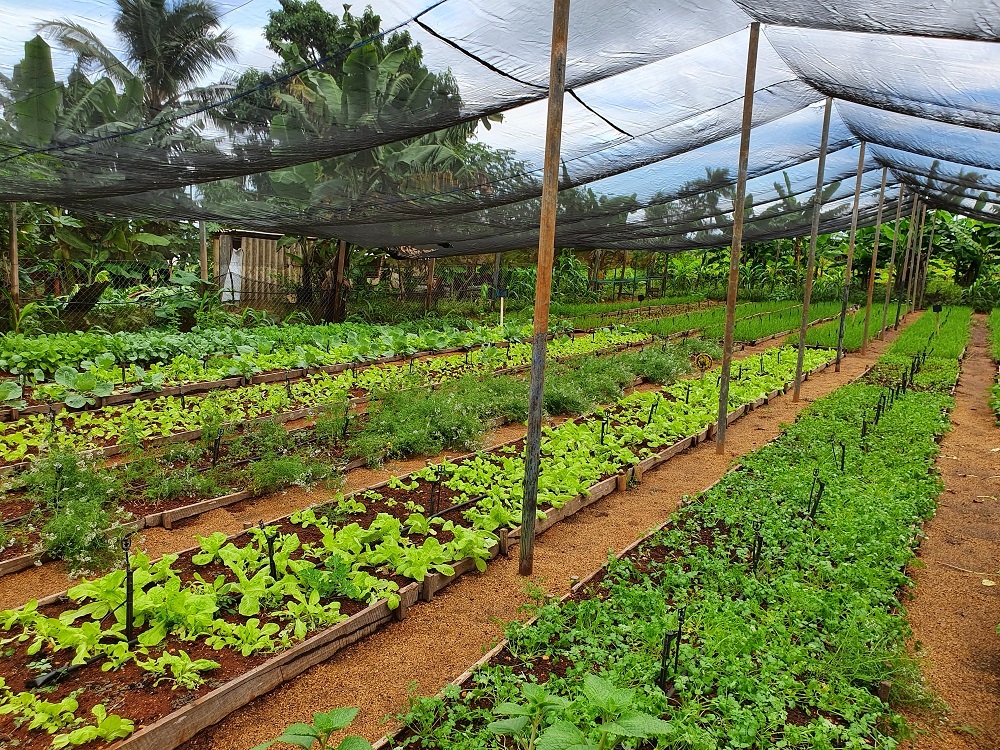All For School Feeding
The delegates visited Cuba’s most easterly province – Guantanamo. In particular, eastern regions are considered country’s less developed territories and most vulnerable ones due to climate factors. In order to provide the little ones with the opportunity to grow healthy by having balanced and nutritious diet, in spite of economic and climate adversities, the Ministry of Education of the Republic of Cuba developed a Plan for School Feeding.
The UN WFP project “Promoting Sustainable Home-Grown School Feeding through Enhanced Local Food Production Systems in Cuba” is supporting the implementation of this plan. The project has a complex approach and does not only support school feeding directly, but also provides help to farmers, who supply their products to school canteens.
Farmers are provided with all the necessary equipment for their work, in addition to this, they undergo trainings on modern and more effective ways of farming, as a result it gives them opportunity to maximize their production.
During the visit SIFI experts talked with representatives of the local authorities of the municipalities Maisi, El Salvador and Manuel Tames. In each case they expressed their interest and commitment to the project.
Local farmers and cooperatives also expressed that they are fully committed to contribute to the improvement of school feeding. In part, it has to do with the fact that most farmers have their children attending these schools. So, their devotion to the project also might be explained through personal reasons.
Local Lifehacks For Boosting Production
In all three municipalities rural areas occupy large tracts. On the one hand, this brings certain difficulties related to the quality of infrastructure, on the other, it means there are opportunities for the development of agricultural activity both for self-provision and to export to other regions of the country.
In the fields and gardens grow all kinds of exotic crops: yuca, banana, papaya, carambola and soursop. However, there are more common ones: tomatoes, pepper, lettuce and cabbage. The major agricultural product in Guantanamo is coffee, which mostly is exported to other countries.
Lots of sun and harmful insects are typical for this area, which results in an obstacle to obtain bigger harvest. To protect their yields savvy local farmers install special greenhouses, which are covered by certain kind of net, equipped with drip irrigation system. According to the farmers, these greenhouses allow to produce 5-6 times more yield versus an open field.

School Gardens For Nutrition And Knowledge
Local farmers delivering their products to schools is not the only source for school feeding in the municipalities of Guantanamo. Most schools have land where they grow fruits and vegetables. Primary school “Antonio Maceo Grajales” in the municipality of Maisi has its own garden. Here they grow lettuce, beetroot, banana, malanga, yuca, chard and yam.
In Cuba school gardens are also used for educational purposes. As part of the education process, school children do a little work in the garden, during this they learn the benefits of fruits and vegetables, develop their gardening skills. This way, school gardens not only contribute to more diversified diet for school children by providing fresh and natural products, but also stimulate learning process about healthy eating.
Topics on healthy eating are discussed during classes as part of school curriculum. Children make paper fruit and vegetables crafts, that afterwards serve as decorations for school canteen and remind students about healthy eating rules.
Into The Future!
The Ministry of Education of Cuba has very ambitious plans for school feeding. That is because school feeding comprises a certain kind of social protection that serves different interconnected purposes at the same time. The main objective here is to provide the little ones with the opportunity to receive healthy and nutritious food for their development, education and future well-being. After all children are the country’s future, and investing in the future is the most righteous approach!